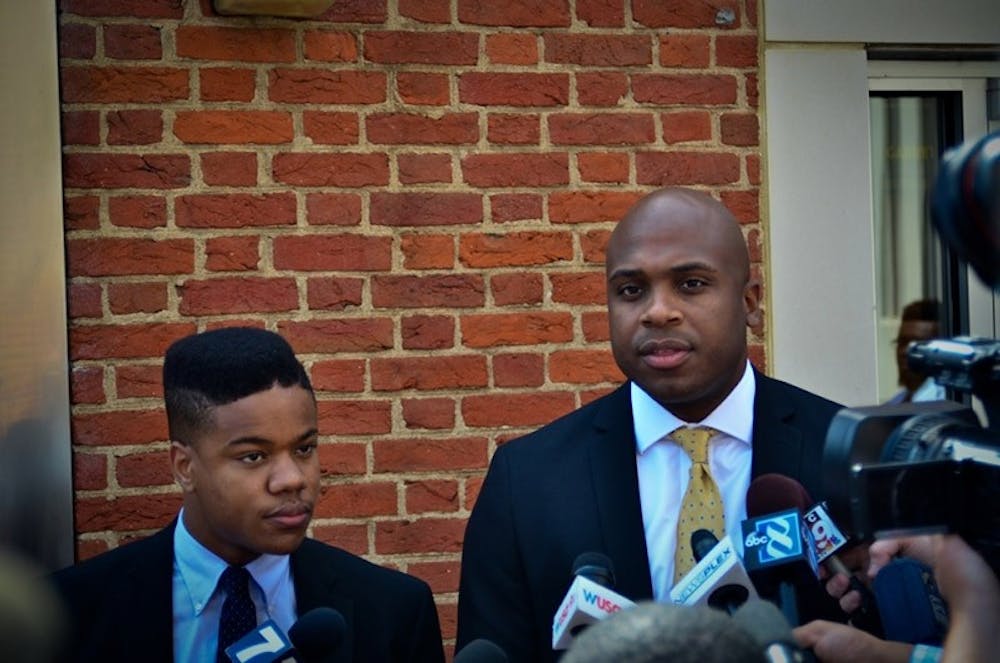In response to fourth-year College student Martese Johnson’s amended lawsuit against the Virginia Department of Alcoholic Beverage Control, its director and three ABC agents, the defense is arguing these changes go too far and have moved to strike the amended suit.
Johnson was permitted to amend his suit following a motion by the defense to dismiss the suit.
The amended suit — filed Feb. 1 — included new bystander liability claims against ABC special agent John Cielakie and additional language alleging the three ABC agents did not know the details of Johnson’s conversation with Trinity’s owner on the night of his arrest March 18, 2015.
In a motion filed Feb. 11, the defense said the prosecution's changes to their suit have exceeded what is allowed by the court and have changed the substance of the case.
“The First Amended Complaint vastly exceeds the scope of the limited leave this Court granted the plaintiff to amend his original Complaint, changing the substance of this action and prejudicing the Defendants in their defense,” the motion stated.
The defense moved to strike the amended suit and seek an extension to file additional “memoranda in response.”
In a memorandum, the defense said the transcript from a Jan. 20 hearing shows the court only granted Johnson the ability the change one of the counts from a simple negligence claim to a gross negligence claim.
“The First Amended Complaint has added, changed, revised or deleted at least sixty (60) paragraphs from the original Complaint, vastly exceeding the limited scope of the leave which this Court granted,” the defense’s memorandum read.
Law Prof. Greg Mitchell said whether the defense is correct in saying the prosecution has gone outside the scope of what is permitted by the court depends on the prosecution's intent and whether the court thinks the changes alter the substance of the case.
"Whether the [defendants] are right depends on whether the [plaintiffs] are just trying to add facts to support their amended gross negligence claim or whether they are trying to amend other claims as well and if the court decides the amendments go beyond the gross negligence claim, whether the court will allow these additional amendments," Mitchell said in an email statement.
Mitchell said the defense's motion may be a bit of a long shot, as courts tend to allow the prosecution to liberally amend their suits.
"In general, courts liberally allow amendments to complaints, often allowing multiple amendments to the complaint," Mitchell said.
Additionally, Mitchell said he would be surprised if the court does not allow the amendments because discovery is currently stayed.
"I would be surprised if the court does not allow the amendments, given that this is the first amendment and discovery is currently stayed, meaning that the [defendants] are not being subjected to document requests, interrogatories or depositions,” he said.
The court has not yet ruled on the defense’s motion.







